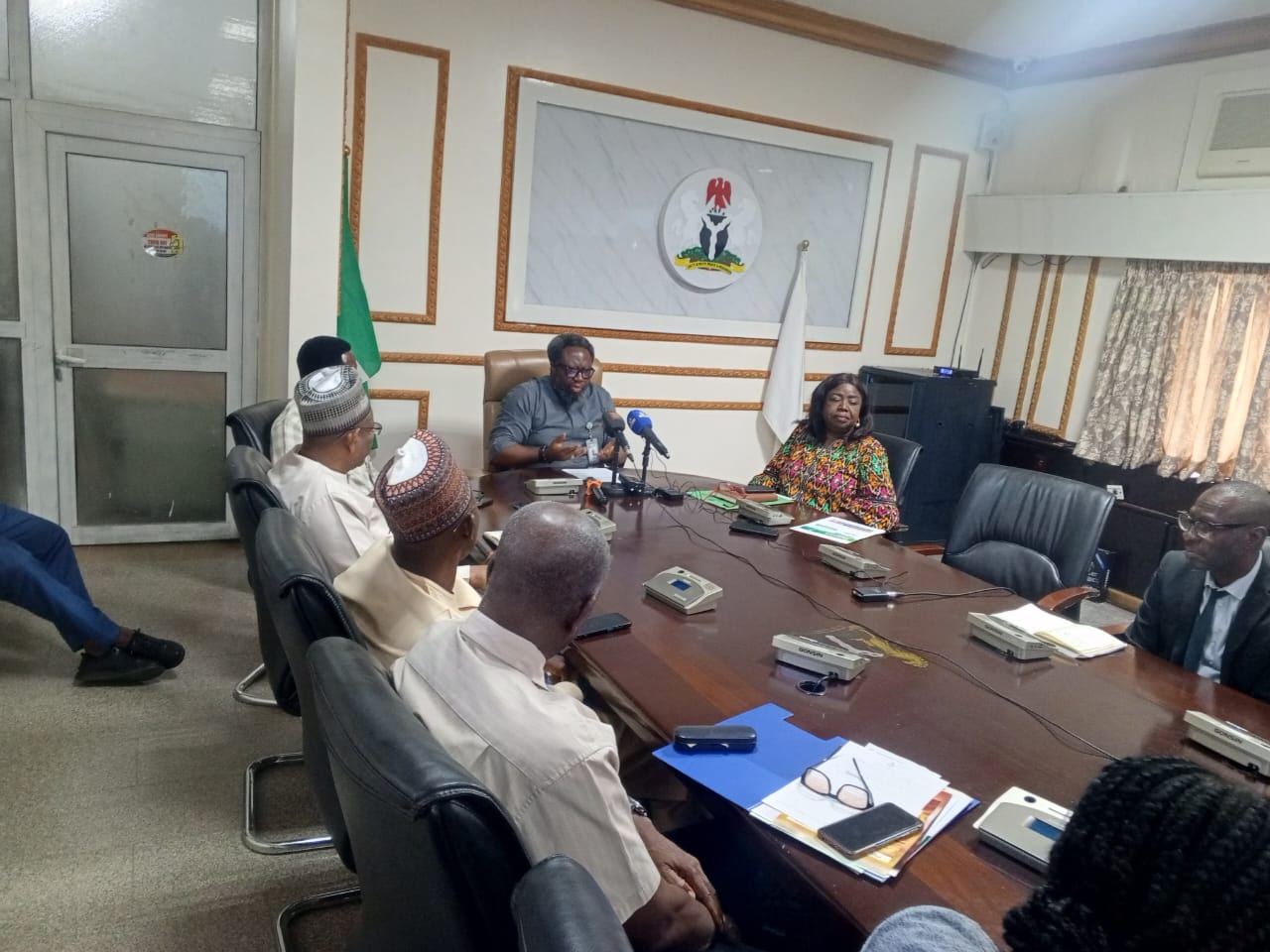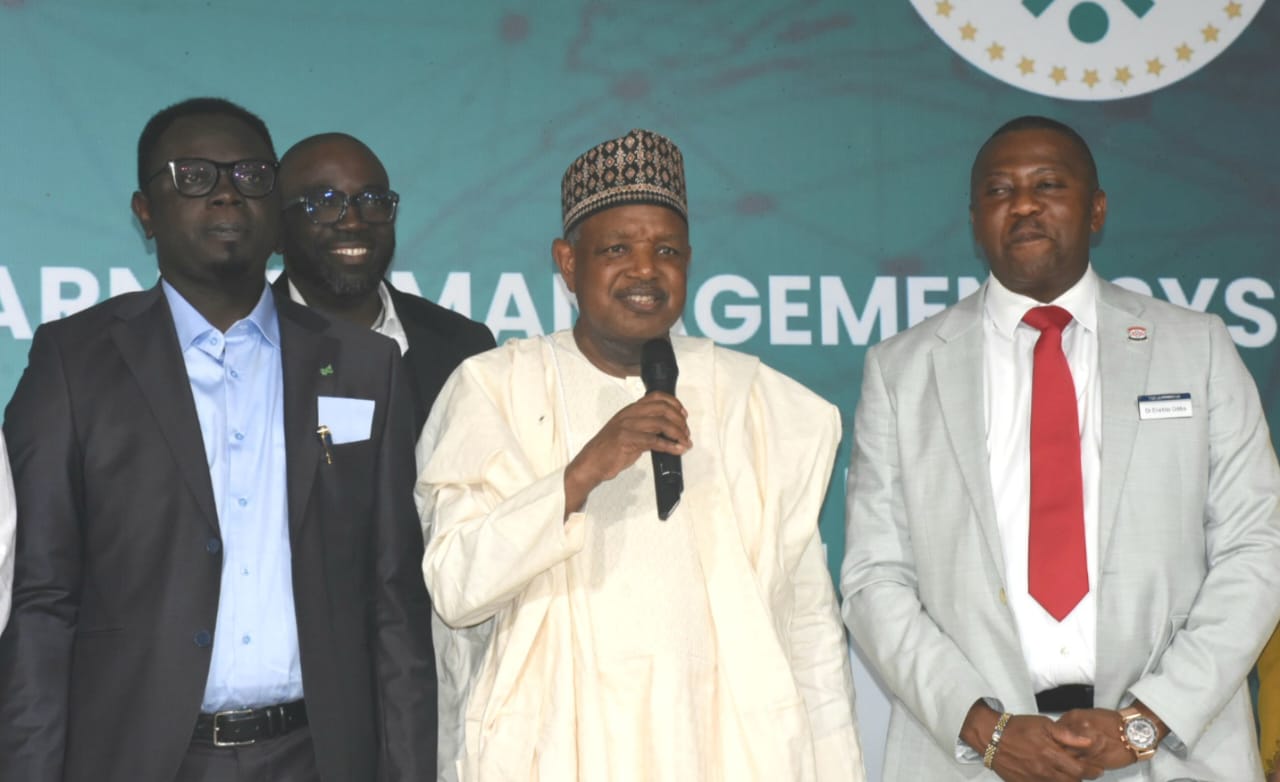Business
Over 1,000 Delegates Storm Abuja for Maiden Africa Raw Materials Summit

…As Nigeria Champions Africa’s Goal of 30% Value Addition on Raw Materials
By Joel Ajayi
In a strategic move to boost value addition across the continent’s natural resources, over 1,000 high-level delegates, experts, and investors from across Africa will converge in Abuja for the inaugural Africa Raw Materials Summit, where Nigeria will take the lead in championing a continental target of 30% value addition on raw materials.
The landmark two-day summit, themed “Shaping the Future of Africa’s Resource Landscape,” is scheduled to take place from May 20 to 22, 2025. It aims to position Nigeria as a catalyst in driving industrial transformation and economic diversification across Africa.
Speaking at a world press conference on Thursday in Abuja, the Director-General of the Raw Materials Research and Development Council (RMRDC), Prof. Nnanyelugo Ike-Muonso, emphasized that the summit is designed to address pressing challenges in the continent’s raw materials industries. These include value addition, industrial growth strategies, investment promotion, and sustainable regional collaboration to enhance Africa’s standing in the global raw materials market.
He noted that while Africa is richly endowed with natural resources, the continent continues to grapple with the inability to harness these assets for sustainable development.
“The summit will provide a vital platform for dialogue among policymakers, researchers, and industry leaders to develop actionable strategies for transforming Africa’s raw materials into high-value products that can compete globally,” Ike-Muonso said.
He described the summit as more than a high-level event, calling it “a continental call to action—a moment for Africa to rise and claim its rightful place as a global center for industrial innovation, value creation, and resource sovereignty.”
Highlighting Africa’s strategic advantage, he said, “Africa is abundantly endowed with over 30% of the world’s strategic raw materials—from agricultural commodities to critical minerals such as lithium, cobalt, graphite, and rare earth elements. Yet, paradoxically, our economies remain trapped at the bottom of global value chains due to our heavy reliance on exporting unprocessed raw materials.”
Calling the current economic model unsustainable, Ike-Muonso argued that it deprives African countries of jobs, foreign exchange, and industrial growth, while also stifling the continent’s potential for technological leadership.
“The time has come for a bold, coordinated shift from extraction to transformation, from exporting potential to industrializing value, and from economic vulnerability to continental resilience,” he declared.
Central to this transformation is the proposed 30 Percent Value Addition Mandate Bill, which the RMRDC has championed and which is currently under consideration at Nigeria’s National Assembly.
“This bill mandates that no less than 30% of all raw materials must be locally processed before export. It is not just a policy—it is strategic economic common sense and a form of national economic defence,” he said.
According to Ike-Muonso, the bill aims to curb capital flight, stimulate local processing industries, create sustainable jobs, enhance global competitiveness, and establish a strong, self-reliant African industrial base.
He explained that the summit will serve as the ideal platform for African stakeholders to deliberate on the initiative, adopt its core principles, and promote similar policies across the continent.
The summit, he said, has three key objectives: Mobilizing a continental consensus on the urgency of industrializing Africa’s resource base through innovation and value addition: Deepening alignment with the African Continental Free Trade Area (AfCFTA) and strengthening regional trade and industrial linkages and Forging actionable partnerships among governments, private sector players, researchers, and development financiers to drive sustainable transformation.
Over 1,000 confirmed participants are expected, including senior ministers and high-ranking officials from Ghana, South Africa, and several other countries, as well as key representatives from their ministries, departments, and agencies.
Key expected outcomes of the summit include:A Pan-African Declaration on Raw Materials Industrialization; Regional support for the 30% Value Addition Mandate and similar national initiatives; The launch of continental investment frameworks for beneficiation and industrial infrastructure.
He also assured that all necessary arrangements have been made to ensure the safety and success of the summit.
“All protocols and logistics have been activated and are being meticulously coordinated. The summit venue has been fully secured and prepared to meet the highest international standards. Every detail, from registration and accreditation to hospitality and technical support, has been carefully planned and is being professionally executed,” he concluded.
Business
FG, Investonaire Academy Unveil National Programme to Equip 100,000 Youths with Financial Skills, Digital Wealth Tools

By Joel Ajayi
The Federal Government, in collaboration with Investonaire Academy, has unveiled a nationwide financial literacy and wealth-building programme targeting more than 100,000 young Nigerians. The initiative is designed to equip participants with practical skills in budgeting, saving, investing, asset building, and long-term financial planning, positioning them for sustainable prosperity in a rapidly evolving economy.
Launched on Tuesday in Abuja, the Honourable Minister of Youth Development, Comrade Ayodele Olawande, described financial literacy as a necessary survival tool for young people confronting today’s economic realities.
He noted that the initiative represents the foundation of a broader vision expected to extend beyond Nigeria to other African nations and global markets.
Reaffirming the Federal Government’s commitment to supporting over 4,000 corps members annually, the Minister said the programme will provide platforms, resources, and skills needed for both job creation and employability.
“The young people who understand money — how to save, invest, build assets, and manage risk — are the ones who will lead Nigeria into prosperity,” he said.
A major highlight of the launch was the expansion of the Nigeria Youth Academy, a digital platform offering mentorship, training, and startup support. According to the Minister, more than 200 startups will receive empowerment through the Academy’s e-app platform before the end of the year.
He stressed the need for deeper collaboration with private organisations, innovators, and youth-focused groups, noting that government alone cannot drive youth development. He further encouraged young Nigerians to embrace skills acquisition, innovation, and digital enterprise, saying these remain critical to reducing the desire for migration and increasing self-reliance.
Outlining the Ministry’s long-term commitments, Olawande emphasized three priorities: supporting youth innovation, equipping them with growth tools, and safeguarding millions of Nigerian youths under the Ministry’s mandate.
Speaking at the launch, Sebastien Sicre, Chief Operating Officer of Investonaire Academy, said the programme was crafted to revolutionize the way Nigerian youths learn and apply financial knowledge. He highlighted the Academy’s gamified Learning Management System (LMS), which offers interactive learning tools, community forums, and real-time mentorship to make financial education engaging and accessible.
Complementing the digital platform is a new 200-square-metre physical training centre in Abuja, opposite the NNPC Towers, where in-person workshops and mentorship sessions will take place.
The curriculum covers key global asset classes — including equities, commodities, forex, and indices — ensuring participants gain a broad understanding of financial markets.
Sicre added that with Federal Government backing, the programme seeks to unlock new opportunities, strengthen youth participation in the digital economy, and reward outstanding participants through a $1 million funding pool to support new and existing ventures.
International Programme Director of Investonaire Academy, Dr. Enefola Odiba, explained that the initiative aims to bridge long-standing gaps in financial education among Nigerian youths. While schools teach many subjects, he said, essential financial skills are often missing.
“Many people can earn money — earning money can be easy. The real challenge is retaining, managing, and growing that money,” he noted.
Referencing the Central Bank of Nigeria’s definition of financial literacy, Odiba stated that implementation remains a major national challenge. He said the initiative brings together government agencies, youth groups, academic institutions, and private-sector partners to translate strategy into measurable impact.
The programme’s curriculum covers budgeting, saving, investing, and financial planning — areas where many young people struggle. By offering practical training, real-world insights, and guided mentorship, the initiative aims to build a generation of financially empowered youth capable of driving innovation, entrepreneurship, and sustainable economic growth.
With this partnership, the Federal Government and Investonaire Academy share a common goal: to empower young Nigerians with the financial intelligence and digital tools needed to build wealth, grow businesses, and transform the nation’s economic future.
-

 Featured6 years ago
Featured6 years agoLampard Names New Chelsea Manager
-

 Featured6 years ago
Featured6 years agoFG To Extends Lockdown In FCT, Lagos Ogun states For 7days
-

 Featured6 years ago
Featured6 years agoChildren Custody: Court Adjourns Mike Ezuruonye, Wife’s Case To April 7
-

 Featured6 years ago
Featured6 years agoNYSC Dismisses Report Of DG’s Plan To Islamize Benue Orientation Camp
-

 Featured4 years ago
Featured4 years agoTransfer Saga: How Mikel Obi Refused to compensate me After I Linked Him Worth $4m Deal In Kuwait SC – Okafor
-
Sports3 years ago
TINUBU LAMBAST DELE MOMODU
-

 News11 months ago
News11 months agoZulu to Super Eagles B team, President Tinubu is happy with you
-
Featured6 years ago
Board urges FG to establish one-stop rehabilitation centres in 6 geopolitical zones
